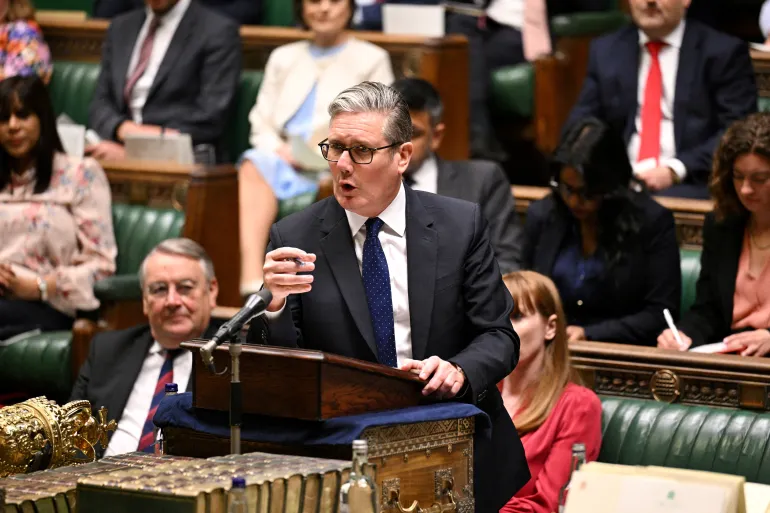
Wafric News – June 27, 2025
London – In a striking political reversal, the UK’s Labour-led government has backed down on its plan to overhaul key disability and sickness benefits, following a grassroots rebellion within its own ranks. The climbdown marks the third major U-turn by Prime Minister Keir Starmer in less than a month — and has raised fresh questions about the direction and soul of Britain’s resurgent Labour Party.
Facing mounting criticism over proposed cuts that could have affected millions of the UK’s most vulnerable, the government announced Friday that the controversial reforms would only apply to new claimants, not existing beneficiaries. The reversal came after 126 Labour MPs threatened to block the bill in a dramatic show of internal dissent.
“This is not just about politics — it’s about dignity,” one rebel MP told WafricNews. “People who live with chronic illness or disability aren’t numbers on a budget spreadsheet. They are mothers, fathers, workers, and neighbours.”
Disability Cuts Sparked Outrage
At the heart of the storm was a sweeping proposal to tighten eligibility for the Personal Independence Payment (PIP) — a critical lifeline for people living with long-term physical or mental health conditions — and other benefits tied to health and income.
Critics warned that the plan would strip support from hundreds of thousands, and force millions into deeper poverty. The Institute for Fiscal Studies projected that up to 3.2 million people could see their incomes reduced by 2030.
The government defended the move as part of its “reform agenda,” claiming it would promote employment while cutting an overstretched welfare bill — which has ballooned since the COVID-19 pandemic.
But for many, the plan signaled a deeper betrayal: a break from Labour’s historic commitment to the welfare state.
Starmer Under Pressure From All Sides
The backlash also exposed growing discontent within Labour’s massive parliamentary majority. While Starmer commands a 165-seat advantage in the Commons, his leadership has been under strain from both the party’s centre-left core and its grassroots base.
Observers say the PM’s recent pivots — particularly on issues impacting low-income Britons — appear aimed at undermining the far-right Reform UK party, but risk alienating Labour’s traditional base.
“Labour should be the party of fairness. But when your policies are perceived as punishing the vulnerable, you're not leading — you're reacting,” said political analyst Steven Fielding of Nottingham University.
A Pattern of U-Turns
This latest reversal is one in a series of abrupt policy changes that have marred Starmer’s first year in office. Earlier this month, the government reversed a plan to cut winter fuel payments for pensioners after internal outrage.
Just days later, Starmer announced a national inquiry into child exploitation, following pressure over his initial reluctance to act. That move came after tech billionaire Elon Musk amplified criticism of the government’s previous inaction on the so-called “grooming gang” cases.
The series of missteps has led to questions not just about policy, but about political competence — and whether Labour is in danger of losing voters to both the right and the left.
A recent YouGov poll of more than 10,000 voters found that Labour is shedding support not just to the hard-right Reform UK, but also to the Liberal Democrats and Greens, as progressives grow disillusioned.
“They’ve been making so many unforced errors,” said Fielding. “Now, there’s a very reluctant recalibration going on.”
‘Listening’ or Losing Control?
In announcing the disability benefits U-turn, a Number 10 spokesperson said the government was “listening to MPs who support reform in principle but are concerned about the impact on current claimants.”
Care Minister Stephen Kinnock confirmed that changes would now be rolled out using a “staggered approach,” sparing existing benefit recipients.
While some welcomed the compromise, disability rights groups say the damage may already be done — both to the public’s trust and to Labour’s standing among society’s most marginalised.
“Concessions made under pressure are not compassion,” one advocacy group told WafricNews. “We need a government that protects people by design — not just when forced to by rebellion.”
By WafricNews Desk.
By WafricNews Desk.


Comment
To post a comment, you have to login first
LoginNo Comments Yet...